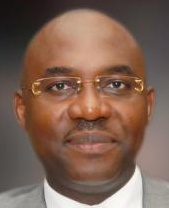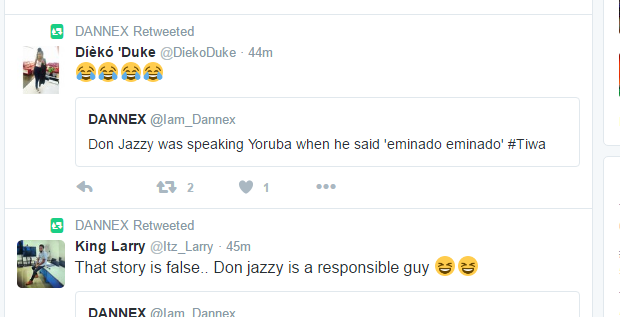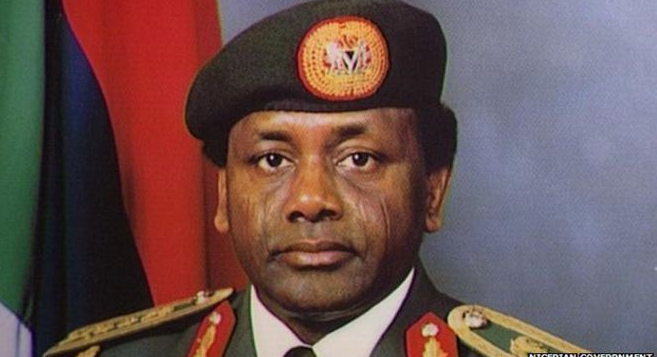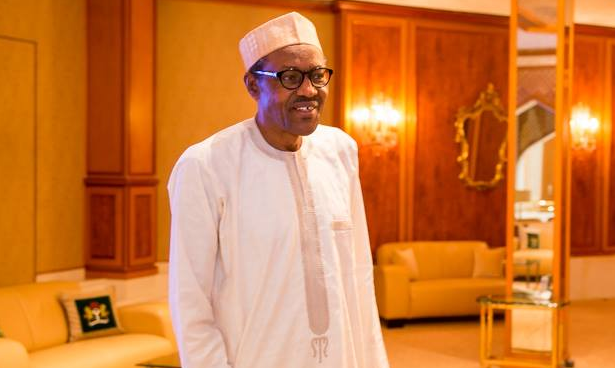I received an agitated call a fortnight ago from the most unexpected quarters. It was a response to the column written on the plague of trigger-happy herdsmen festering across the land.
The caller, a successful entrepreneur-cum-polemist and understandably a southerner, frowned at the writer’s tone which he considered too conciliatory to the murderous nomads and, according to him, indulging official indifference with a reluctance to use harsh words.
Honestly, I had thought the nation was already dragged into the perimeter of danger and the moral obligation of the columnist is exercise utmost restraint in the circumstance; not inflaming passion any further.
In the said piece, one had enjoined the president not to leave the nation in doubt where he stands at this grave moment. One wrote: “Now is the time for President Buhari, himself a cattle farmer, to go beyond the normal call of duty to stave the dangerously growing perception that seeming official lethargy – if not indifference – to the continued killings is dictated by the spirit of kinship he shares with the rampaging herdsman or that the nomad’s renewed audacity, this genocidal reflex, feeds on the opium of expected solidarity from the top.”
Advertisement
But with the latest pogrom in Enugu on Monday, one now feels compelled by a sense of shame to admit that the blood of the innocent is probably on those of us whose circumspection, ordinarily a respectable gesture of moderation, would have inadvertently stirred in the victims a will not to resort to self-help, naively hoping a bunch of unreconstructed savages could be overpowered with the show of civility. From what is now known, the aggressors seem emboldened all along to scale up their barbarism by every turn, aware the rest of the society are unwilling to lift a finger. The latest killing of 48 citizens in Enugu in cold blood was totally avoidable had the various security agencies under federal command been alive to their duties.
Sadly, the villagers of Ukpabi Nimbo saw their own assassins coming days ahead. But the authorities failed to take steps to shield them. Coming barely a month after the Agwu 76 were abducted by “unknown soldiers” from the same Enugu and held hostage in Abia for protesting the herdsmen’s excesses, nothing could be more provocative. Among the latest casualties was of a fresh graduate, Eze Patrick Okechukwu, who just passed out from the NYSC few days ago, and an octogenarian who, at such fragile age, must have looked forward to a peaceful transition.
Their spokesman, George Ajogu, put things in perspectiveTuesday when the state officials joined them to count their dead: “Had the security agencies responded appropriately, this would not have happened. (The herdsmen) did not take us unawares, we knew they were coming. Because we lack security, the Fulani come here and tell us the land is theirs. They tell the farmers to kneel down and they rape the women in front of their husbands.”
Advertisement
Elsewhere in Obiaruku in Delta State the following day, the ubiquitous armed herdsmen also went on rampage. No fewer than eight farmers were seized from their farms in apparent retaliation of alleged killing of four cows in the locality. The captives were only released later in the afternoon after the youths had mobilized.
Given the brutality of the slaughter and the intensity of destruction of homes (including churches), it was clear the Enugu attack was carefully planned and clinically executed. Strangely, the president only broke his silence Wednesdayafter the deed had been done. It apparently took the outrage expressed from a section of the country over the latest killings before the Commander-in-Chief formally deemed it necessary to direct a crackdown on these killing gangs. The message was delivered by Information Minister Lai Mohammed.
But considering the gravity of the issues now raised, the least expected is Buhari speaking directly to the nation. In the circumstance, timing is every thing. The message and the messenger arrived almost too late.
The burden of guilt over the blood already shed is therefore more on the president who seems unable to read or appreciate that the growing epidemic of murder, its geographical slant, the attendant ethnic eruptions and social disruptions do not just undermine his credibility as a unifying leader but also the stability of the nation at large. It is high time he realized there has to be a country first before he can be addressed as a president.
Advertisement
The other day, the government did not consider it out of place to liken pipeline vandalization to terrorism, putting the saboteurs on notice they would henceforth receive the Boko Haram treatment. So, why was it so difficult for the president to come out openly and read the riot’s act to the band of murderers who undoubtedly constitute much bigger threat, in fact seemingly hell-bent on putting a sharp knife on the last strand of the already threadbare gaiter tremulously latching the nation together? Really, the impression thus unwittingly created is that the oil flowing in the pipeline is more treasured than the blood flowing in the veins of the citizens.
On Tuesday, the Emir of Ilorin, Ibrahim Sulu-Gambari, lent his weighty voice to the popular clamour for a decisive step before too late: “It behoves on the Federal Government to be more serious on the issue so that it doesn’t become another Boko Haram on our hands.” Though, he believes the AK-47 -wielding herders are not Fulani but “wandering and migrating tribe of people going everywhere.” If indeed they are “foreigners”, then the puzzle: why is it so difficult for the Nigerian state to frontally take the supposed “invaders” out?
What the latest Enugu massacre again underscores is the gross inadequacy of the nation’s current security architecture and the imperative of one that is responsive and responsible to local need. Today, the security forces in every state are not answerable to the resident political authorities. Even in the hour of emergency, Abuja’s order is still considered superior to that of the state governor. It explains why the state security meeting summoned by the Enugu governor Sunday following credible intelligence that something sinister was afoot ended up in vain. Various pledges of commitment made by the local heads of all the security agencies at the meeting (said to have dragged till early hours of Monday) were of no consequence when the attackers struck at Ukpabi Nimbo few hours later.
Much more fundamental is the alienation of the security personnel themselves. In perpetuation of the unitarist credo of military rule, officers are deployed outside their ethnic origin. In the moment of temptation, most then naturally view conflicts from ethno-religious lens. It probably explains why when the villagers of Ukpabi Nimbo cried out for help for days, no one seemed to have understood their language.
Advertisement
Sadder still, on Wednesday, I read an article in The Nation entitled “Ranches or prison for herdsmen?” written by Sale Bayari, the Secretary-General of the cattle farmers known as Gan Allah Fulani Development Association (GAFDAN), and my heart sank. In case Bayari was speaking for all members, then more troubles still lie ahead. So far, the only silver lining in the dark clouds was the assurance that the stakeholders and the relevant authorities had narrowed down the options to either setting up ranches or grazing reserves to fix the perennial clashes between herdsmen and farm-owners.
Given deep cultural complexities of the country on top of pervasive ethnic suspicion, the consensus is that the option of ranch will be more feasible for now. But Bayari argues passionately that the herders would settle for nothing other than grazing reserve. Curiously, this seems to be Buhari’s own thinking, with the Agric minister announcing few weeks ago that arrangement had been concluded to import improved grass seeds to cultivate the proposed 50,000 hectares of grazing reserves within six months.
Advertisement
Plausible as he might sound, Bayari’s argument hardly takes into account the sensibilities of other ethnic stakeholders, particularly people of the Middle Belt and the entire south who view the idea of setting up grazing reserves across the country today as a dangerous seed that will, in foreseeable future, germinate into a Fulani take-over of the Nigerian space in entirety, thereby fulfilling jihadist Othman Dan Fodio’s expansionist vision more than two centuries ago.
Much as Bayari is free to dream of grazing land without borders, fear of possible acculturation harbored by others can however not be wished away.
Advertisement
Perhaps, a taste of what to expect came from Oyo during the week. Without mincing words, Governor Abiola Ajimobi declared not an inch of his state territory will be ceded to Buhari’s grazing reserves: “This is the time to call a spade a spade. Those clamouring for creation of grazing zones across the country should have a rethink. It is against the Land Use Act. It is against the law of natural justice to seize people’s land to cater for someone’s cattle.”
Obviously, Buhari now faces the first real acid test that may potentially define his presidency.
Advertisement
GEJ: Man of cash, not value
Don’t aspire to be a man of great wealth, but a man of values. The foregoing admonition is made by great oriental philosopher, Khalil Gibran. But it is obvious this makes no meaning to a vain character like Goodluck Jonathan. Otherwise, he would not have permitted himself liberty to travel to faraway United States last week to advertise his emptiness by listing his achievement in office as creating the ladder that enabled a Nigerian climb from fifth position to No 1 on Forbes rich list.
On the side, he also spoke glibly about strengthening democracy by valuing “the process (of elections) more than the product of the process.” Well, it does not really matter if the preacher himself shamelessly resorted to all the known dirty tricks (including unilaterally shifting polls by six weeks on a flimsy excuse) in the last general elections.
Addressing an audience in New Jersey, Jonathan boasted that the nation he bequeathed last year was wealthier both at corporate level on account of self-rebasing of the Gross Domestic Product (GDP) and at citizen level: “In 2009, the richest Nigerian was the fifth richest man in Africa but I handed over a Nigeria that produced the richest man in Africa.”
He deployed hyperbole to a new cynical low with yet another sensational claim that he bequeathed a nation shuttling in fast train. But it is part of Jonathan’s tradition of fraud to equate a fantasy on 3-D slides to reality or exaggerate the substitution of a few dead coaches with refurbished ones at some locations to mean “total transformation” of the Nigerian railway system.
Taken together, Jonathan’s latest postulation is only a rehash of the old infantile, provincial indices he always cited as a sitting president to measure “growing national prosperity.” Once, he returned from a trip to a fellow African nation and would thump his chest that at the foreign tarmac, all the private jets that had perched before he landed were owned by Nigerians.
But no inference could be more illiterate. Let us even engage him right at his favorite spot: the tarmac. Is it not a reflection of Jonathan’s own warped sense of “new national prosperity” that whereas the combined fleet of surviving commercial airlines in the country under him was less than fifty serviceable aircraft servicing 170m population, there were more than a hundred private jets owned mostly by shady characters with no visible source of income.
What makes it doubly tragic is that, in the first place, the prosperity Jonathan alluded to is nothing but phantom. Perhaps, he meant to say he came tops in squander-mania and aiding and abetting cronies and party men and women to loot the national treasury. Nigeria’s foreign reserve at the time he took over in 2010 was over $40b including the Excess Crude Account. By the time he left office last year, the figure had plummeted to less than $30b. Yet, between 2010 and the third quarter of 2014, oil sold for average of $100 per barrel consistently.
It is a testament to Jonathan’s cluelessness and emptiness that all the nation had to show in 2015 for the preceding years of surplus was growing poverty index even as a tiny cabal grew stupendously rich overnight through schemes like the petrol subsidy scams. According to the Customs, the national economy was bled to the tune of N1.7t between 2011 and 2014 through duty waivers and exemptions Jonathan awarded his friends.
Simply put, Jonathan left the nation severely battered and in near bankruptcy, contrary to his new contrived tale of prosperity. Pity, as president, he outsourced reason to his Finance minister. As Command-In-Chief, he surrendered power to to coterie of craven generals chaperoned by a thieving National Security Adviser. Unfortunately for Jonathan, he is not in a position today to also outsource responsibility for all that transpired yesterday.
To say nothing of the colossal hole dug on the nation’s ethical foundation as currently dramatized by Dasukigate. While the damage wrought on the Nigerian edifice could be mended over the time by a more conscientious application of resources, it definitely will take longer time to fix the carnage inflicted at the cultural realms in terms of lowering our moral values, generally cheapening things we once held dear as a nation. Nigerians always knew their leaders steal from time. But no one had imagined that under Jonathan “stealing is not corruption”. Or that money meant to buy arms for our soldiers to fight insurgents threatening national stability would be trucked to the National Security Adviser’s closet and shared to party’s fat cats on election’s eve.
In case Jonathan is still wallowing in denial, he ought to be ashamed of the stream of seedy disclosures that has been flowing non-stop since he left office, all of which invariably cast him in a sordid frame: either a political eunuch hopelessly lost in the chamber of power or a buffoon content with only sucking a thumb while the tribe of vultures and freeloaders looted the exchequer.
Add a comment







